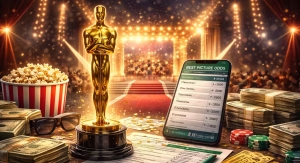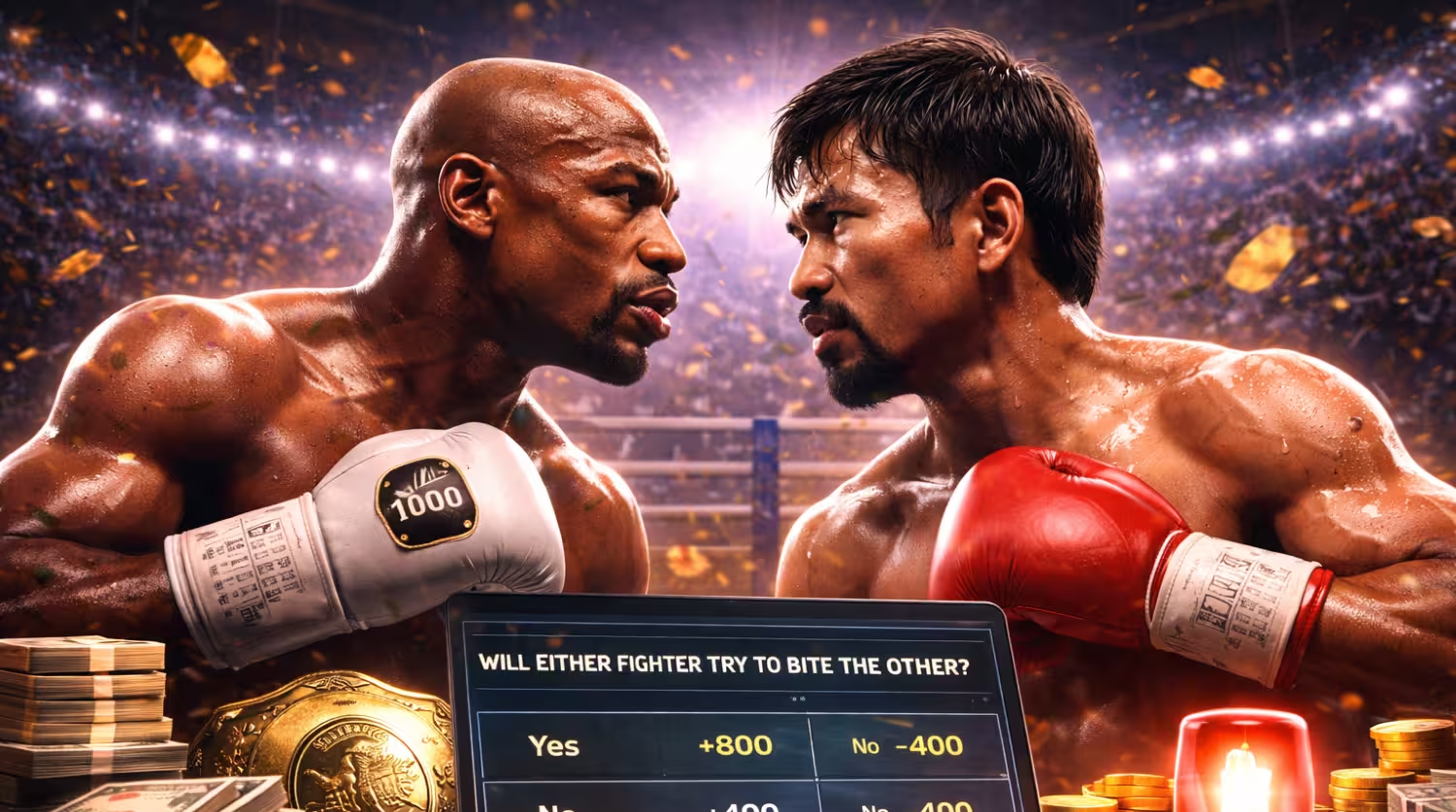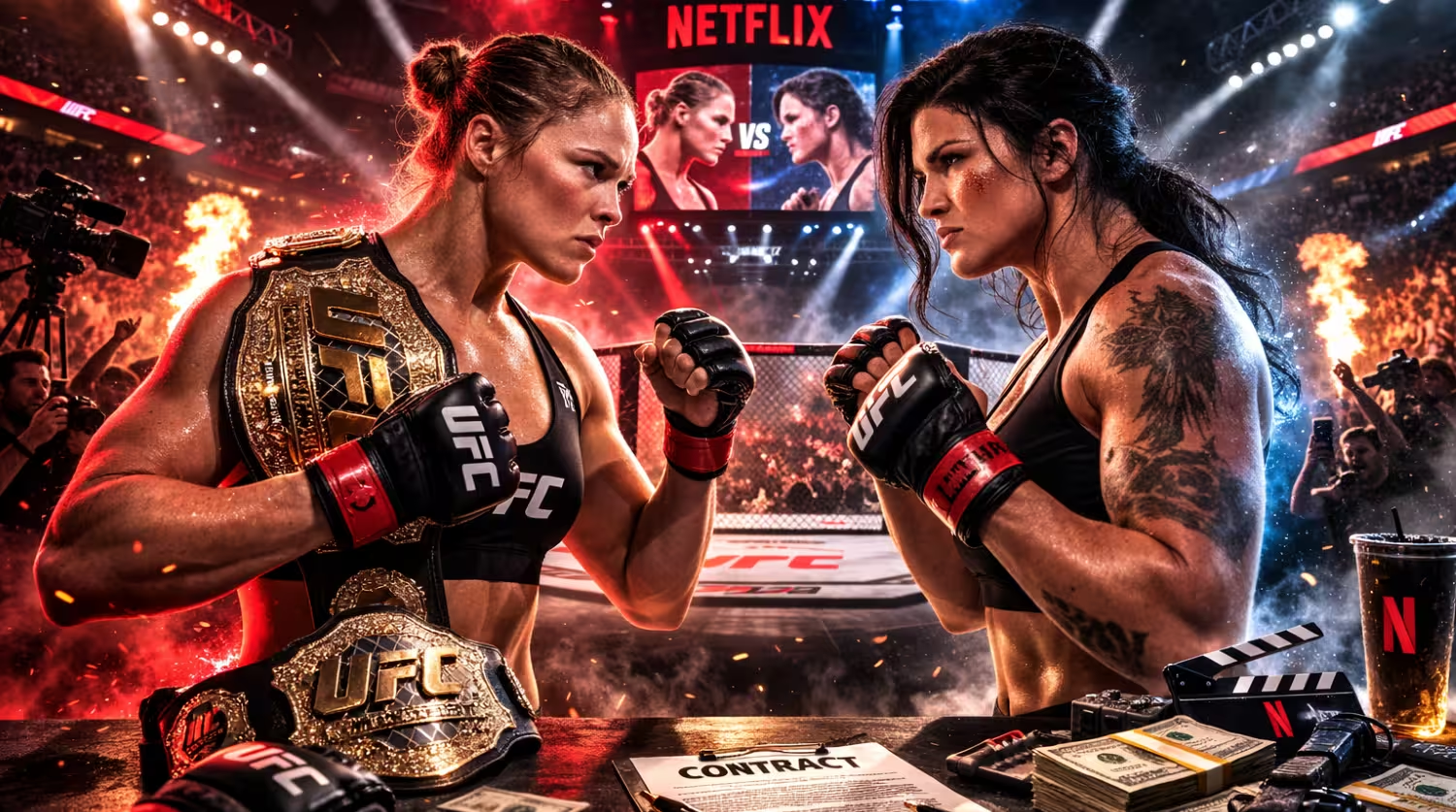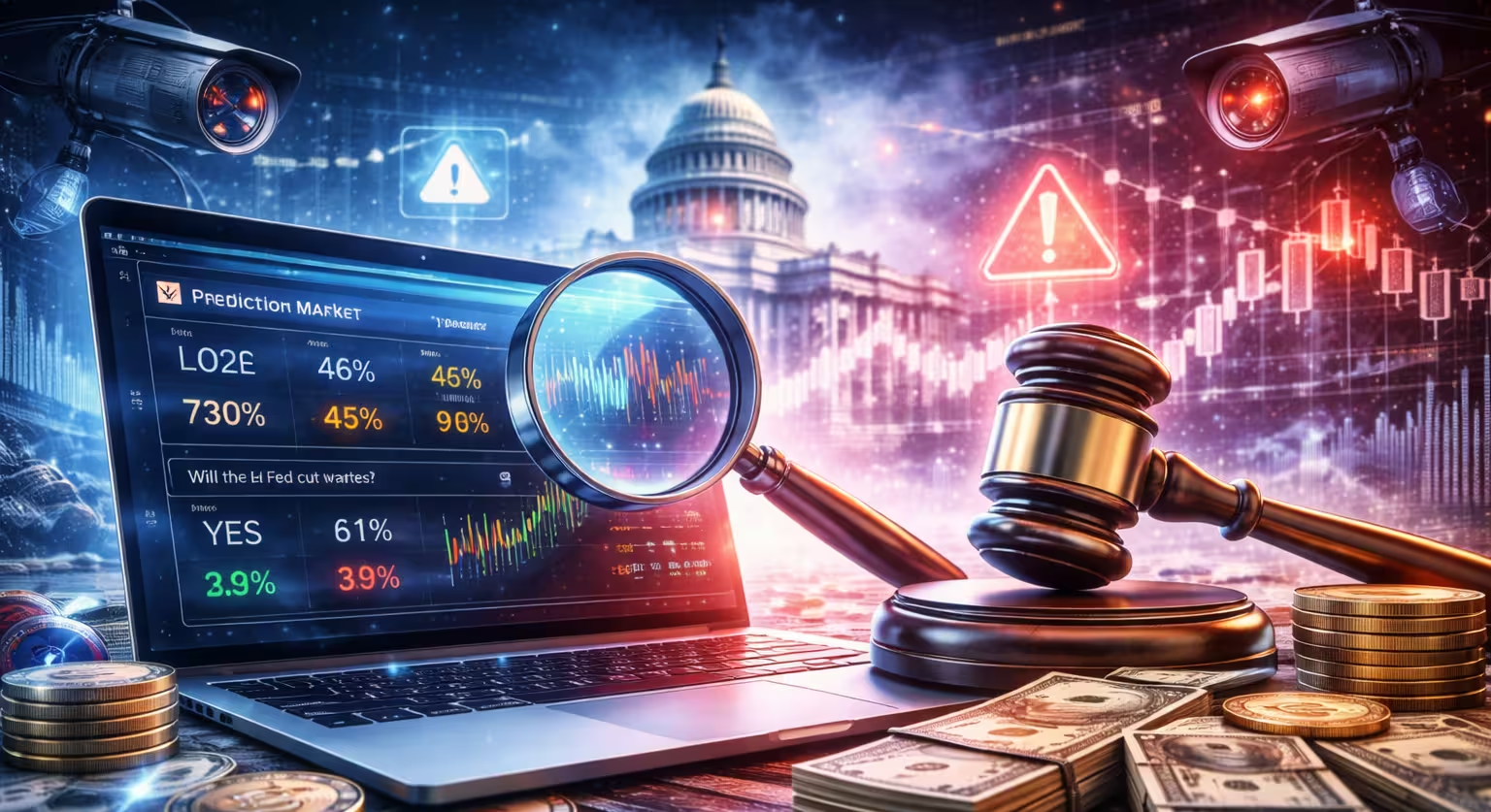Betting on the Weather: The Strangest Legal Wagers in History
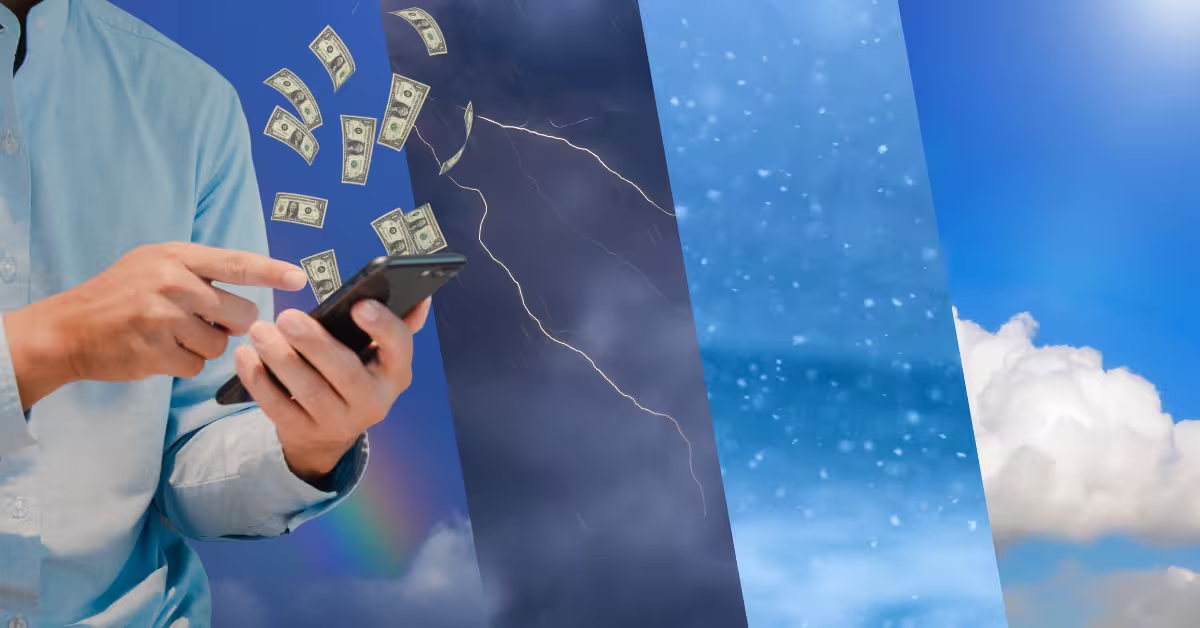
What if we told you that you could bet on the weather? I didn’t believe it at first, either. All I could think was, “Man, weather forecasters must be cleaning up if you can bet on if it’s gonna rain or snow.”
Turns out it’s not that simple, or we’d have zero weather forecasters; they’d be billionaires and wouldn’t have to stand in front of a map on the nightly news to give the public the humidity index for the week.
Anyway, back to betting on meteorological wagers. You can bet on the weather, and a whole host of other really odd things. They’re called novelty and prop bets, and they aren’t just a yearly thing that happens at the Super Bowl.
How and why do people make these kinds of weird bets? Because they’re out of the ordinary, and that’s the appeal. There are legal markets that specialize in these off-the-beaten-path wagers, and they’re in the UK and the U.S. markets!
You can bet on the weather, along with a lot of other absolutely bizarro things, and we’re gonna tell you all about it and how you can get in on the action.
From weird to straight up wacky, let’s find out what the strangest legal wagers in history are.
Yes, You Can Legally Bet on the Weather
People mostly associate betting with sports, but bookmakers have long been offering weather bets as novelty markets. In the UK and Ireland? Weather betting has been around for years. Bookies like Paddy Power, Bet365, and BoyleSports regularly open markets on things like a “white Christmas” or record high or low temperatures. The UK Met Office defines a white Christmas as a single snowflake observed on December 25 anywhere in the country. Betting on the weather got super popular during the COVID-19 shutdown, when offshore sites like Bovada put out daily high/low temperature lines for major U.S. cities.
History of Weather Betting
Betting on the weather is not just a pandemic fad, either: it traces back a decade in Europe. UK bookies have traditionally run White Christmas and similar novelty markets around the holidays. In 2017, Paddy Power and BoyleSports offered odds of 3/1 that Dublin would see snow on Christmas Day.

In addition to Christmas, bookmakers have also offered seasonal weather bets, like the hottest/wettest day of the year. In 2020-21, when sports were canceled, U.S.-facing books like Bovada added weather wagers so that bettors could wager on daily high/low temperatures in cities like Las Vegas and Chicago.
But in the U.S., regulators treat weather contracts as financial derivatives, so the mainstream U.S. sportsbooks like DraftKings and FanDuel have pretty much avoided them. Federally regulated outlets like Kalshi stepped into the void, allowing bets on things like daily highs in Philadelphia, PA, or an Arctic ice extent. As of late 2024, Kalshi had seen millions wagered on just a few weather markets; $5.3M was bet on Philadelphia’s high temperature over a few months!
Types of Weather Bets
Where can you find weather bets, and what can you bet on? They’re listed under “specials” or found in novelty bet menus on the books that have them. The most common types include the following:
- Snowfall events: “Will it snow in [City] on Christmas Day?” is a perennial market. Bets can be yes/no or over/under on total snowfall.
- Temperature extremes: Bettors can also wager on the highest or lowest temperatures on a given day or in a given month. This includes “record high/low” bets, like “will today become the hottest day of the year?” Major events sometimes get special props; William Hill offered 5/1 that the 2025 Wimbledon final would exceed the tournament’s existing record 35.7 °C. Sports bettors can also find odds on game-time temperatures; FanDuel offered Super Bowl kickoff temperature ranges in Celsius.
- Precipitation totals: Markets also let you bet on total rainfall or snowfall over a period or during an event. Bettors can play an over/under on the month’s total rain vs. a book’s line. Special event rainfall, like “will it rain during the Kentucky Derby?” is also sometimes on offer.
- Novelty extremes: Bookmakers like Paddy Power have made headlines with wild weather bets, like 100/1 that the Thames river would freeze over between Westminster and Tower Bridge, or that London’s Big Ben would stop chiming because of ice. Others include bets on hurricane landfalls, tornado counts, or wagers on the global average temperature in a given month.
Real-World Examples of Weather Betting
- A White Christmas in the UK: Every winter, the big UK bookmakers quote odds on a white Christmas. The odds vary by location; a recent forecast put London’s odds at only about 9/1 (≈10%), whereas typically colder northern cities have shorter odds. Paddy Power once paid out its white-Christmas bets early in Dublin when a snowfall looked likely. In general, the pools are small, but millions have been wagered nationwide on white Christmas markets.
- Sports and Major Event Prop Bets: Weather betting usually ties into big events. As we said above, in this year’s Wimbledon finals, William Hill ran a market on whether that year’s final would break the all-time heat record. Similarly, during Super Bowl LIX, online sportsbooks listed over/under brackets for the kickoff temperature in Toronto. Even if sports sites haven’t fully integrated it, traders on Kalshi bet heavily on the weather the day of big games: when the Philadelphia Eagles made the NFL playoffs, Kalshi saw $5.3 million in trading volume on Philadelphia’s daily high temperature.
- Odds on Record Highs: Weather history is a popular target, too! Bookies let you wager on if records will fall; before a heatwave, you can bet that a new monthly or all-time temperature record will be set. In late 2024, bettors watched Ireland’s summer heat: Paddy Power suspended its market on Ireland’s record high because so many bets were pouring in.
Why Do People Bet on the Weather?
Like we said, it’s fun! A lot of people see it as a light-hearted diversion when no big sports are airing. It taps into the same obsession people have with forecasts and small talk. Some bettors are also motivated by real-world considerations: farmers and energy companies might use weather bets to offset financial risk from extreme weather, which is a kind of informal hedge.
Odds for weather bets are set much like any other proposition. Bookmakers analyze meteorological forecasts and convert them into probabilities. They might estimate the chance of snow based on climate models, then “add a little extra” margin to ensure they make a profit. As weather patterns evolve, the odds move. Early-season White Christmas odds might be long, but if a December cold snap is coming, a book will shorten those odds, which will lower the payout on snow.
And betting exchanges work in a similar manner: the Kalshi market is literally a prediction market, so bettors drive the odds. On a cold day in Philadelphia, the chance of a 0–5 °C high fell from 47% to 25% in minutes as new data came in, and that changed the potential payoff for each wager.
In all cases, weather bets are games of probability with no chance of outside manipulation; there are no match-fixing or insider concerns in meteorological outcomes. Gamblers who study climate history and forecasts can make informed picks, just as they would in sports. Ultimately, “mother nature” decides the result, and the house profiting is inevitable, as bookmakers always build in a margin, just like they do in any other betting market.
The Weirdest Legal Bets Ever Made
You can bet on who will win the Super Bowl, who hits a home run, or what team covers the spread. That’s standard betting fare. But there are gamblers who want to bet outside of the box. Like on the name of a royal baby. Or which celebrity will die next? And, of course, if E.T. will come to planet Earth.
All of the above bets? They exist. They’re called novelty wagers, and they are absurd and legally sanctioned. And bookmakers in the UK have been more than happy to take money on things that sound like they were born from a conspiracy theory, and the U.S. isn’t far behind.
Want to hear some of the most ridiculous legal bets that were ever made? We do too!
When Kate Middleton got pregnant, the UK sportsbooks went absolutely feral. Betting shops were flooded with names like “Arthur,” “Diana,” “Alice,” and, because someone always has to be a troll, “Kanye.”
In 2013, George was the winning ticket, paying out at 2/1. When Princess Charlotte arrived in 2015, the name saw odds around 3/1, and “Diana” was a heavy sentimental favorite around 5/1. But bookies still posted long shots like “Chardonnay” (100/1), “Elvis” (250/1), and “Wayne” (500/1), just in case someone got drunk and nostalgic for The X Factor.
When Meghan and Harry had Archie, punters threw down bets on everything from “Alfred” to “Spencer.” At one point, “Diana” came back as a favorite again, even though the child was a boy.
When Archie arrived in May 2019? A lucky UK bettor hit the jackpot. Their single bet on “Archie” paid out £18,000, which is around $23,300 USD!
People have actually bet, and done so legally, on if we’ll find aliens. Not just someone somewhere thinking that aliens-do-exist-bets, but by-this-date-we-will-confirm-extraterrestrial-life bets.
In the 1960s, a pair of scientists, Michael Hart and Frank Drake, famously wagered that extraterrestrial life would be discovered before 2000. That bet did not cash out.
More recently, bookies like Paddy Power have posted odds on things like the following:
- Alien life confirmed by NASA before 2025 (50/1)
- The U.S. government confirming alien contact (100/1)
- A UFO landing at the White House before 2030 (odds were removed when QAnon got involved)
The closest people came to a payout was in 2020, when the Pentagon officially declassified UFO footage and the internet lost its collective mind. Alas, “weird aerial stuff” is not the same as “confirmed intelligent life.” Back to Earth, people!
This one exists, though it’s kinda controversial, and it’s not always sportsbook-sanctioned. Dead pools are usually run privately, but there are some fringe online platforms and forums that have turned it into a real betting structure. The format? You choose a list of celebrities. If one kicks the bucket, you score points. If multiple die in a short span, you win big.
Morbid? Yep. Legal? In certain forms, yes, when it’s structured like fantasy football and there’s no bookie profiting. In the UK, traditional bookies have steered clear of taking actual money on it after facing public backlash. That said, novelty odds have been posted in the past on things like:
- Which old-school rocker might be “next”
- If a certain royal would outlive a Hollywood legend
- Odds on who’d be written out of EastEnders via funeral storyline
Betting on politics is one thing: there are elections, party control, approval ratings. But novelty political bets? They kick it up several notches. Here are a few examples that have shown up on legal UK sportsbooks and offshore platforms:
- Will the U.S. president say “climate change” during the State of the Union?
- Will Trump tweet more than 20 times on a given day?
- Will a world leader be seen shirtless in a calendar year? This was mostly a Putin special; RIP to that meme market.
And during the 2020 U.S. election season, you could also bet on:
- Which color tie would Biden wear during the debates
- If a fly would land on a candidate (thanks for that, Mike Pence)
- If someone would say “fake news” on live TV
They aren’t exactly high-stakes wagers, but they’re real, and they attract bettors who are chronically online.
Reality TV betting is alive, well, and super competitive. In the UK, legal sportsbooks regularly post odds on these:
- Who wins The Bachelor, Love Island, and Strictly Come Dancing
- Who gets the final rose or gets voted off next
- If a contestant cries in a hot tub (I love this one so much)
And awards show prop bets have turned into a booming novelty market. For the Oscars, you can bet on these things:
- Odds on Best Picture, Best Actor/Actress (because, of course)
- The length of acceptance speeches (Over/Under 45 seconds is a popular line)
- If someone trips walking up those stairs
- Which political cause will be name-dropped first during the show
UK bookies like Ladbrokes and William Hill treat Love Island like it’s the Champions League. There are matchups, outright winner markets, and prop bets on “first breakup after the villa.”
Betting Markets Love the Absurd
No one’s betting their mortgage on if the next Pope will be named Urban or if Bigfoot turns up in Seattle, but that’s not the point. Novelty bets aren’t there to drive serious volume; they’re there to get attention. Bookmakers figured out a long time ago that the weirder the bet, the faster it spreads. Doesn’t matter if it’s “Will aliens be confirmed by NASA?” or “Who’ll cry first on Love Island?” absurd bets do just what they’re supposed to do: invite curiosity, make headlines, and get casual onlookers to click. They’re bait, and they’re great bait!
Engagement First, Logic Second
Novelty wagers serve one purpose above all else, and that’s visibility. Sportsbooks use them to pull in bettors who wouldn’t touch a spread or total but would absolutely throw £5 on whether the Queen will wear green to Ascot. The bets aren’t serious, and they’re not supposed to be. They’re frictionless engagement; easy to understand, easy to talk about, and for some, too tempting to ignore.
During slow sports months or off-season lulls, novelty bets prop up the content machine. A well-timed odds board for something like the next James Bond actor can keep a sportsbook trending for days. You’ll see the odds reposted by blogs, embedded in entertainment stories, and argued over by people who have never placed a bet in their lives.
The PR Stunt Masquerading as a Market
Bookmakers love press, and novelty bets are PR gold. Odds on a royal baby name? Free front-page coverage. A market on if Elon Musk will fight with his bestie, Trump, again? It’ll be quoted in a dozen tech blogs within an hour.
Most of the markets aren’t built for profit; they’re built to go viral. The trick is that once someone’s on the sportsbook looking at novelty odds, they’re that much closer to betting on something real. They aren’t gimmicks, they’re acquisition tools. Sure, they look silly on the surface, but they’re strategic.
Paddy Power pretty much wrote the playbook on this. Their history of outlandish bets, like odds on whether Trump would tweet during a UN speech or if Simon Cowell would cry (again) on The X Factor, kept them in the headlines long after the news cycle moved on. Even if no one bets, people will remember the brand.
The Psychological Pull
Another part of what makes novelty betting addictive is that it scratches the very same itch as trivia night. Everyone thinks that they know something others don’t. It’s a chance to play the insider without having to beat an algorithm or research a sports team.
If you’re a Bachelor fanatic, you’ve watched the edit patterns. You think you can tell who gets the final rose. If you follow pop culture obsessively, you’re convinced you can predict the next celebrity breakup. It’s that voice saying, “I’ve got an edge on this one.” And the novelty market gives you the outlet for it.
Bookmakers know this, and it’s why they keep these odds just plausible enough to feel beatable, and silly enough that losing them doesn’t hurt too much. There’s not a lot at stake, and so what if you just guessed wrong on whether the next Pope would be from Africa?
When It Crosses the Line
Before we go full-on novelty bet endorsers, not all of the weird bets are all in good fun. There’s a very fine line between funny and tasteless, and sportsbooks have put their foot over it more than once. Odds on celebrity relapses, political assassinations, or natural disasters have all caused a fair amount of public uproar. Even though it’s technically legal, some markets do end up getting yanked after complaints.
The issue with these is the tone. Betting on the name of Harry and Meghan’s next kid? Lighthearted. Betting on whether a global pandemic cancels the Olympics again? That starts to get icky.
Same with the markets that are related to major public tragedies; some operators ran markets on things like “next country to leave the EU” after Brexit or “odds of martial law” during the early COVID days. You can guess how that went over.
The Legality of Weirdest Legal Bets
You can bet on whether it’ll snow on Christmas in the UK, but you can’t legally bet on whether Elon Musk will name his next child after a number in most of the U.S. Why not?
Because novelty bets exist in a strange legal limbo; sometimes they’re totally legit, sometimes they’re labeled as too ridiculous, and sometimes they’re pulled after public outcry. The laws that govern these bets vary depending on the location, platform, and how regulators feel about what counts as “sports betting” versus “spectacle.”
Let’s take a look at where these strange bets are legal, where they’re still off-limits, and why some novelty markets get killed before they go live!
Where You Can Legally Bet on Weird Stuff
If you’re in the UK, congrats! You reside in the Disneyland of novelty betting. British sportsbooks like Paddy Power, Ladbrokes, Bet365, and Coral have been offering odds on everything from royal baby names to if aliens will be discovered by 2030. Betting on political speeches, reality TV outcomes, and award shows is just another Thursday.
Ireland’s market is similar, and Australia’s is on its heels. Canadian books have recently opened up, too, and legal platforms like Bet99 and NorthStar offer occasional novelty props.
Offshore sportsbooks like Bovada or BetOnline cater to U.S. bettors by skirting local regulations, and they regularly post weird novelty lines: UFO landings, celebrity baby names, and simulated Mars colony dates. If it’s odd enough to go viral, chances are an offshore book has odds on it.
Why Most U.S. Sportsbooks Won’t Touch Novelty Bets (Yet)
Legal U.S. sportsbooks, like DraftKings, FanDuel, Caesars, etc., have kept novelty bets off the table. The reason is simple: state regulators don’t like gray areas.
Each state’s gaming commission decides what qualifies as a “sports event,” and most novelty bets don’t fit that definition.
- Betting on who wins The Bachelor? That’s based on a pre-recorded show, which means someone already knows the outcome, and that’s an instant red flag.
- Political speech props? Too unpredictable and tied to government figures.
- Celebrity behavior? Morally dicey, at best.
There are exceptions. Some books in states like Colorado or Indiana have petitioned to offer odds on awards shows like the Oscars, but even that required commission approval and super strict oversight.
So for now, unless you’re on a prediction market like Kalshi, which operates under a different regulatory umbrella, novelty bets in the U.S. are in a legal dead zone.
When Strange Bets Cross a Line
Novelty betting is supposed to be harmless fun, but books have crossed into murkier territory before, and they’ll probably do so again.
What are some of the worst examples? These:
- Odds on celebrity relapses: Several offshore books have taken heat for posting bets on if public figures would enter rehab.
- Assassination markets: These have shown up (mostly anonymously) on crypto-based prediction platforms, and regulators shut them down STAT.
- Natural disaster betting: Wagering on the number of hurricane landfalls, or death tolls from global events, has caused serious blowback. Even if technically legal, these markets don’t last for long.
- Pandemic-related odds: During COVID, some books offered odds on vaccine rollout delays, country-by-country death milestones, and if Olympic athletes would catch the virus mid-Games. Most of those markets were removed after receiving negative press.
As a general rule, if a bet feels exploitative or uses human suffering as a game mechanic, it doesn’t last long. Public outrage gets these markets pulled faster than regulators can react.
And here are some more gross examples of real prop bets that were yanked because of public reaction:
- “Next Pope” Death Watch Odds (2013, Paddy Power): When Pope Benedict XVI resigned, Paddy Power ran odds on who would become the next Pope. That wasn’t the issue; it was the simultaneous market on “Which public figure will die next?”, which ran adjacent to the papal market and featured prominent names. The Catholic Church and multiple media outlets slammed the juxtaposition as tasteless. Paddy Power pulled the more morbid markets, though not before racking up a week’s worth of free press.
- Oscar Pistorius “Guilty or Not” Trial Market (2014, multiple offshore books): After the Paralympian was arrested for the shooting death of Reeva Steenkamp, some offshore sportsbooks opened odds on if he’d be found guilty. The public response was immediate and overwhelmingly negative, especially from advocates of domestic violence victims. The books tried to reframe it as a “legal outcome prediction,” but the damage was already done, and the markets were taken down within days.
- Next Terror Attack Location” (unlisted, 2000s): A rogue novelty bookie (operating out of a now-defunct site) once listed odds on where the “next major terrorist attack” would take place. The market, which included cities like London, New York, and Madrid, was immediately flagged by watchdog groups. It never gained traction in mainstream media but circulated long enough to draw regulatory attention. The site was shut down for unrelated compliance issues shortly after.
- Amanda Bynes “Rehab or Jail First?” (2013, offshore): This offshore bet followed a string of public incidents involving the actress, and it was widely condemned as exploiting mental health struggles. TMZ picked it up, social media went after the site, and the market disappeared overnight.
Can You Bet on the Weather Today?
Could you throw down some money in the weather right now? You can if you live in the UK! It won’t show up on your go-to sportsbook unless you’re across the pond or you know where to look. Weather betting is in the background on platforms that specialize in novelty markets or prediction contracts.
Where You’ll Find It
In the UK, mainstream books like Paddy Power, Bet365, and Ladbrokes all list weather bets under their novelty or “specials” sections. These aren’t constant fixtures, but they do pop up around major events (Wimbledon, Christmas, royal parades) or when a big change in the forecast gets extra attention.
As we mentioned before, Kalshi has a foothold in the U.S. as a regulated market where users can trade yes/no contracts on things like the following:
- Will the high in Phoenix hit 110°F on Thursday?
- Will New York get more than 0.5 inches of rain tomorrow?
- Will September 2025 be warmer than the historical average?
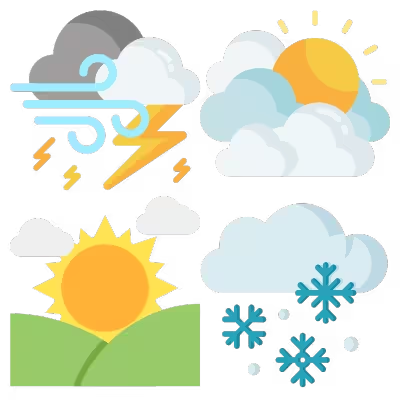
It’s not sportsbook-style betting, as it’s structured more like a market exchange, but it is legal and weather-focused. You’re not guessing, you’re reacting to data.
Offshore sportsbooks still post the occasional weather prop, but those aren’t regulated. If you’re betting there, it’s riskier for reasons that have nothing to do with the forecast!
What You Can Bet On
Daily markets range from city-specific conditions to broader seasonal props. The most common categories include:
- Rain totals: These are usually framed as Over/Under in millimeters or inches for a single city, and are based on official weather stations.
- Temperature thresholds: Will City X hit above or below a fixed number?
- Wind events: Gust speed bets show up during storms, particularly in coastal areas.
- Event-based forecasts: During outdoor events like Wimbledon or Glastonbury, you’ll see markets on whether rain delays a match or cancels a set.
Markets tend to open when the forecast becomes interesting, and that means unusually dry, dangerously hot, or wet enough to disrupt something that people care about.
Using Forecast Data to Make a Move
You don’t need to be a meteorologist to read a weather model, but you do need to go further than the default app on your phone. Sites like Windy, Meteociel, and the Met Office have multi-model forecasts with hourly updates. Traders on platforms like Kalshi monitor the shifts between model runs and watch how the probabilities react.
There’s a really narrow window where having better data and getting it faster can give you an edge. That might last a few hours before the odds adjust. But if you’re on it early? There’s room to make solid picks using forecast movement alone.
But it’s not foolproof. Models will disagree. Storm tracks slide. And what looked like a strong line on Tuesday morning can become a bust by the late afternoon.
What Makes It Risky
The same thing that makes weather betting appealing, which is its randomness, is also what keeps most bettors away long-term. There’s no playbook for an unexpected pressure drop or a storm system that putters out 30 miles off course. And you’re not getting much margin when the books know that a spike is coming.
Rare events, like heat records or a snowfall in April, sound exciting, but they’re priced like lottery tickets. The line between smart speculation and novelty guesswork gets really thin, really fast.
If you’re betting on weather, you’re betting against time itself, not talent. And time doesn’t care how good your instincts are.
Conclusion: Reality Is Stranger Than Fiction & You Can Bet On It
Betting on the color of a royal baby’s blanket or if the girls are fighting again (Trump and Elon) sounds like a joke, but it’s not. It’s real, it’s legal, and it’s popular. Novelty markets are part sideshow and part real-life, and they’re a fixture for the bettors who don’t want to be boxed into box scores and stat sheets.
As for the whole betting on the weather? Well, that’s been around longer than most sportsbooks. Yes, it’s gimmicky, but it’s brought in data-loving gamblers and curious newbies. It doesn’t payout life-changing amounts, because nature doesn’t play by the odds.
What these markets really expose is just how strange, and frankly, entertaining, real life is when money gets involved. Bookmakers know this. Bettors know this. And as long as the forecast’s changing or a celebrity’s trending, you can bet that someone’s going to be putting odds on it.
It’s all fun and games until you’re yelling at a cloud or frantically refreshing the Met Office at 4:11 a.m., so don’t lose your cool and gamble responsibly. Oh, and leave Amanda Bynes alone!

Alyssa contributes sportsbook/online casino reviews, but she also stays on top of any industry news, precisely that of the sports betting market. She’s been an avid sports bettor for many years and has experienced success in growing her bankroll by striking when the iron was hot. In particular, she loves betting on football and basketball at the professional and college levels.



